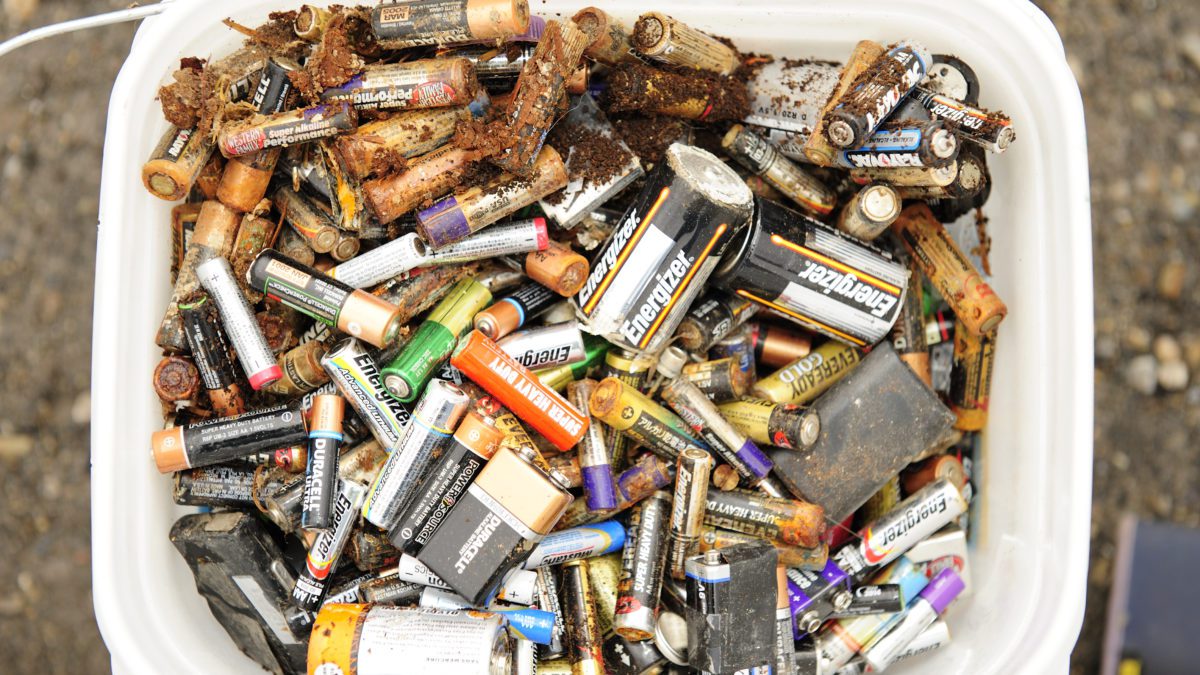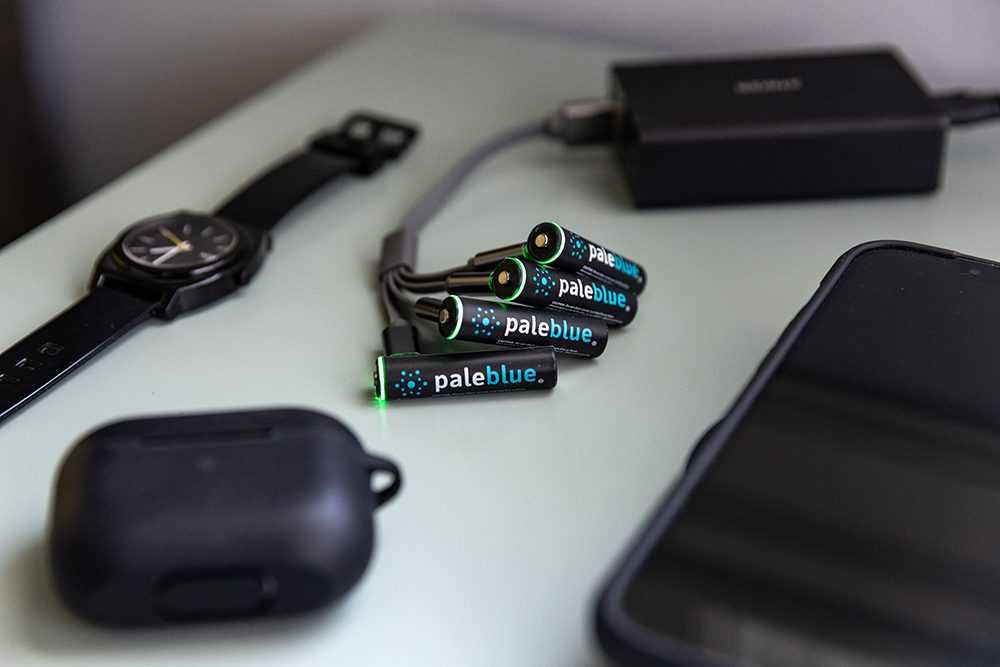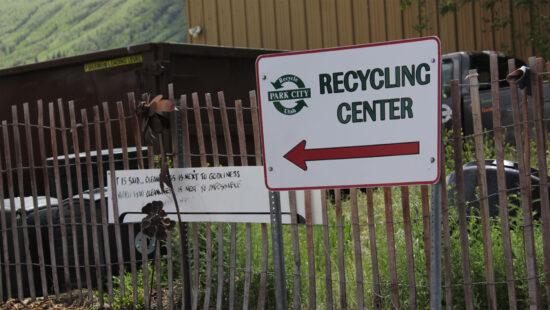Environment
Paleblue aims to divert batteries from landfills through local initiative

Passively, Recycle Utah collects 2,500 pounds of batteries every other month, which are combed through and sorted by Ellen Sherk's hands. With Recycle Utah, Pale Blue Earth hopes to collect more from the community and keep them out of landfills. Photo: Recycle Utah.
PARK CITY, Utah — Everyone’s favorite holiday, National Battery Day is on Saturday, February 18. Local rechargeable lithium battery company Pale Blue Earth (Paleblue) aims to spread awareness about the impact something as small as single-use batteries have on the world.
Paleblue has partnered with Recycle Utah, Recyclops, local businesses, and the Park City School District, and added more battery drop-off locations to the community for the month of February to divert batteries from ending up in landfills.
Drop-off locations for the month of February:
- Skullcandy
- Kodiak Cakes
- Summit Center (2750 Rasmussen Road)
- Kiln
- Canyons Village at the base of the Cabriolet
“It’s hard to get an accurate number, but the numbers we’ve read are about 5% of all batteries get recycled,” said Tom Bishop, CEO and founder of Paleblue. “That’s 10 million [batteries] a day that are getting thrown away in the U.S. alone.”
Once batteries are in landfills, they can discharge harmful chemicals like mercury, cadmium, lead, and nickel into the soil and water tables, which can adversely affect the environment and human health.
“I think a fundamental [problem] is people aren’t aware they can recycle batteries,” Bishop said. “If we can figure out a way to do this locally, then I think we can scale it up. The drop-off buckets are filling up pretty quickly already.”

Through passive collection, Recycle Utah recycles 2,500 pounds of batteries every two months. That’s around 15,000 pounds a year, which is a good dent, but Paleblue knows Park City has more batteries than that. And FYI, it is okay to recycle already corroded batteries.
“Everybody has batteries in their home in a box, bin, or drawer,” Bishop said. “Usually, the used ones end up in a box in the garage or a bag, and then people are intending to recycle them but they don’t make it. I would argue that the growth in the market is driven by cheap consumer electronics that are invading our lives. So there are more batteries now than ever.”
Bishop and Paleblue’s best hope for the battery recycling initiative is the children in the school district. Kids learn about battery recycling at school then turn around and share the information with their families.
However, Bishop is hopeful some of the participating businesses and others will want to continue beyond February.
Beyond educating and involving the public, Paleblue specializes in replacements for single-use batteries. Its lithium ion batteries are USB chargeable and can go beyond 1,000 charges, not that the average Joe will get close to that number. Lithium ion batteries power our smartphones, computers, e-bikes, and EVs.
Bishop worked for Burton Snowboards, Skullcandy, and Owlet for a time and learned the benefits of disrupting entrenched business practices and brought that to Paleblue.
“It wasn’t batteries, per se, it was a recognition of nobody’s going solve this. I have two kids and my community is now defined by the future that we’re going to leave our kids. [Paleblue] believes that we have the wherewithal to actually disrupt this giant, stale commodity single-use industry. Thinking differently was something that all the brands that I’ve worked for has proven, can make a difference. If you’re going to make change, you have to come at it from a different angle.”

















